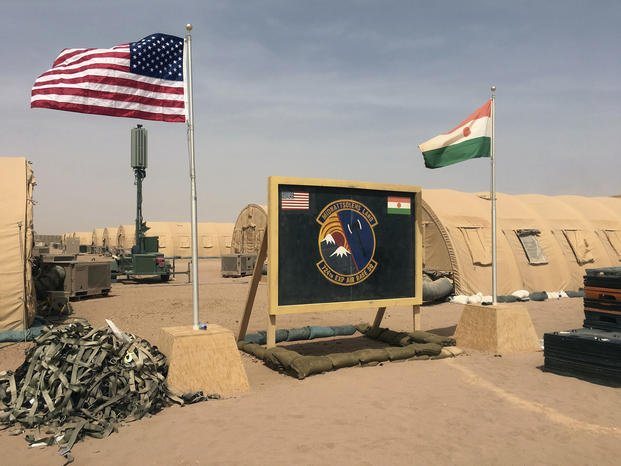WASHINGTON — The United States will pull the majority of its troops from Chad and Niger as it works to restore key agreements governing what role there might be for the American military and its counterterrorism operations, two U.S. officials said.
Both African countries have been integral to the U.S. military’s efforts to counter violent extremist organizations across the Sahel region, but Niger’s ruling junta ended an agreement last month that allows U.S. troops to operate in the West African country. In recent days, neighboring Chad also has questioned whether an existing agreement covered the U.S. troops operating there.
The U.S. will relocate most of the approximately 100 forces it has deployed in Chad for now, one of the U.S. officials said. In Niger, the majority of the 1,000 U.S. personnel assigned there also are expected to depart, a second U.S. official said. They spoke on condition of anonymity to provide details that haven't been made public.
U.S. and Nigerien officials were expected to meet Thursday in Niger's capital, Niamey, “to initiate discussions on an orderly and responsible withdrawal of U.S. forces," the State Department said in a statement late Wednesday.
Called status-of-forces agreements, these deals allow the U.S. to conduct critical counterterrorism operations within both countries' borders and have supported military partner training. The reversals have prompted concern that U.S. influence in Africa is losing ground to overtures from Russia and China.
Relations have frayed between Niger and Western countries since mutinous soldiers ousted the country’s democratically elected president in July. Niger’s junta has since told French forces to leave and turned instead to Russia for security.
Earlier this month, Russian military trainers arrived to reinforce the country’s air defenses and brought Russian equipment, which they would train Nigeriens to use.
Niger plays a central role in the U.S. military’s operations in Africa’s Sahel region, a vast region south of the Sahara Desert. Washington is concerned about the spread of jihadi violence where local groups have pledged allegiance to al-Qaida and the Islamic State groups.
Niger is home to a major U.S. air base in the city of Agadez, about 920 kilometers (550 miles) from the capital, which is used for manned and unmanned surveillance flights and other operations. The U.S. also has invested hundreds of millions of dollars in training Niger’s military since beginning operations there in 2013.
Officials from the State Department, U.S. Africa Command and the Pentagon will work with Chad’s government to make the case for U.S. forces to continue operations, Joint Chiefs Vice Chairman Adm. Christopher Grady said Wednesday.
State Department spokesman Vedant Patel told reporters Thursday that the U.S. is still talking with Chad about the security partnership and expects those talks to grow after the country's May 6 presidential election.
Grady told The Associated Press in an interview that if both countries ultimately decide the U.S. cannot remain, the military will have to look for alternatives to run counterterrorism missions across the Sahel.
“If we are asked to leave, and after negotiations that’s the way it plays out, then we are going to have to recalculate and figure out a new way to do it,” Grady said.
The news of the departure of U.S. forces in Chad was first reported by The New York Times.











